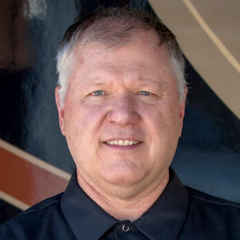
All About Your RV Water Heater
Dave SolbergAfter a long afternoon of driving on the road or hiking in the woods, nothing feels better than having a nice, hot shower in your RV bathroom. One of the best parts about RV camping instead of opting for a tent is that you get to use your own shower at the end of the day. Of course you won’t find unlimited hot water and those little bottles of shampoo and conditioner that you would at a hotel, but it certainly beats schlepping through the woods to the communal toilets at a campground. To get that life-giving hot water flowing into your bathroom, you need to have a functional and well-maintained RV water heater on board. These LP-supplied units are relatively simple to care for, and they come in standard versions on most modern motorhomes and fifth wheels. They’re generally 6 gallons, but you can also upgrade to a 10-gallon heating system if you have the special and financial means.
In this free lesson, RV expert Dave Solberg walks you through a quick overview of the typical RV water heater, discussing their main components and functionality. You’ll learn how the usual water heater operates, and discover what to do if your unit needs troubleshooting. With Dave’s handy advice, you’ll never find yourself up the creek without hot water!
RV Water Heater Basics
If you are unfamiliar with the standard water heater on board most RVs, allow Dave to briefly talk you through the basics. Much like a regular house version does, a smaller-scale RV water heater is filled with cold water, which it then heats up to a boiling point to send to your bathroom and kitchen faucets.
It consists of a tank to hold the water and keep it at an elevated temperature, in addition to the heating system, which is in charge of actually firing up to raise the temperature. The switch for the water heater is on the inside of your vehicle, but the ignition system can be located in a compartment on the exterior wall of the passenger side.
Modern RV units utilize easy-to-operate direct ignition systems, which means the heater will kick itself on when the water temperature drops too low. All modern units have self-regulating temperature sensors, so you don’t have to worry about turning the system off and on when not in use.
However, if you have a smaller or older model, your RV water heater probably uses a pilot light and manual ignition that you’ll likely have to go outside and ignite by hand. If this is the case for your heater, the process is quite easy, but if you encounter any issues, there are plenty of handy user guides available on the Internet. You can also consult your appliance’s manual.
Additionally, Atwood water heaters have aluminum tanks that act as anode rods, thus the situation is a bit different for these.
Other Things to Consider
Now that you know the essentials about your onboard RV water heater, Dave has a few extra expert tips for operating and maintaining your specific unit. First he talks about the importance of inspecting your water heater occasionally to ensure it’s in proper working order. A couple minutes of your spare time once or twice per year will guarantee you get the longest lifespan out of your heater and will have to dip into savings one less time! The same goes for other water and air conditioning units on your RV.
It’s also very important to keep in mind several safety aspects in relation to your RV’s water heater. Most notably, you should always be sure to keep your hands, feet, and other body parts away from the exhaust vents on the exterior of the water heater compartment. Kids and curious uncles, too, steer clear! This also applies to furniture and camping accessories, especially those that are flammable. The unit gets very hot, so rule #1 is don’t touch!
That’s pretty much all you should need to get started. This lesson and Dave’s expert advice ought to be a sufficient introduction to your RV water heater, tank, and ignition system. By the end of the video, you will have learned about the two basic types of tanks available today, including their installed anode rods, plus a breakdown of exactly how the system typically works if it’s functioning correctly.
Safety tips are covered as well, since the water heater compartment door is positioned outside for easy access and it can emit a large amount of heat when the system is working. As with other appliances that reach high temperatures, be sure to shut them completely off before conducting any maintenance or repair.
If you’re in the market to replace or upgrade your water heater, Dave will teach you about the typical tank sizes available from multiple manufactures today, as well as the methods of heating the water itself using either LP gas or electricity. As previously mentioned, don’t hesitate to consult online guides or discussion boards if you run into any issues with your unit or you’re unsure whether there is, in fact, an issue.
Where to Turn for Help
RV Lifestyle & Repair has countless instructional videos about water system and appliance maintenance taught by some of the most experienced RVers in the business, so please take a look through our archives; you’ll almost certainly find a video that answers your questions or points you in the right direction. We have an extensive catalog on the benefits of appliance upgrades, and even a series of videos on appliance inspection and troubleshooting.
Most importantly, don’t hit the road before conducting a thorough checklist on all of your vehicle’s operating and appliance systems. Trust us, there are few things more upsetting than reaching your campground several hundred miles away from the nearest certified RV technician only to discover your RV water heater or other vital appliance is on the fritz! Take the proper precautions, and we guarantee you’ll have an unforgettable time exploring this beautiful country of ours in your RV. Fond memories, great times, and safe travels: that’s what we’re all about at RV Lifestyle & Repair!
Share tips, start a discussion or ask one of our experts or other students a question.
Already a member? Sign in
26 Responses to “All About Your RV Water Heater”
Explore videos by Dave Solberg
You may be interested in
Premium Membership
Unlock exclusive member content from our industry experts.
- 24/7 Access to Premium RV Maintenance Videos, Travel Inspiration, and Lifestyle Tips
- Step-by-Step Instructional Demos, Projects, and Guides
- 50% Off Video Downloads Purchased in the RV Lifestyle & Repair Shop
- Access to Ask the Expert Program
Unlock exclusive member content from our industry experts.
- 24/7 Access to Premium RV Maintenance Videos, Travel Inspiration, and Lifestyle Tips
- Step-by-Step Instructional Demos, Projects, and Guides
- 2 Full-Length Video Downloads to Watch Offline
- 50% Off Video Downloads Purchased in the RV Lifestyle & Repair Shop
- Access to Ask the Expert Program
Gold Membership
$333 Value
Get everything included in Premium plus exclusive Gold Membership benefits.
- 24/7 Access to Premium RV Maintenance Videos, Travel Inspiration, and Lifestyle Tips
- Step-by-Step Instructional Demos, Projects, and Guides
- 9 Full-Length Video Downloads to Watch Offline
- 2 Full-Length RV Repair Classes to Keep for Life
- Discounts on Purchase-to-Own Content in the RV Lifestyle & Repair Shop
- Access to Ask the Expert Program
- Exclusive GOLD LIVE Streaming Events
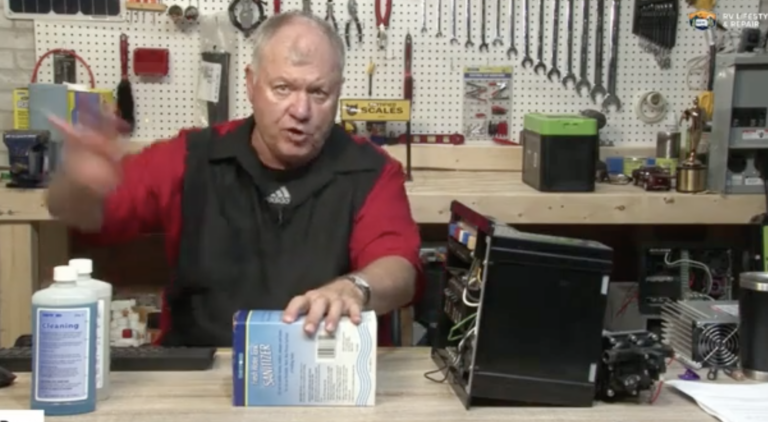
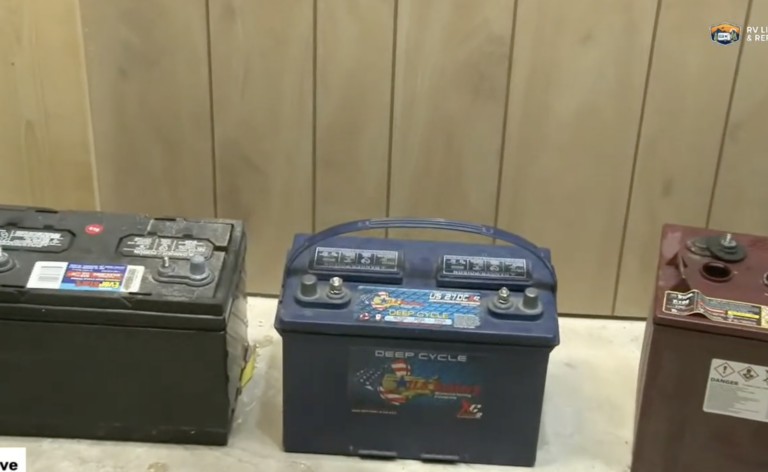
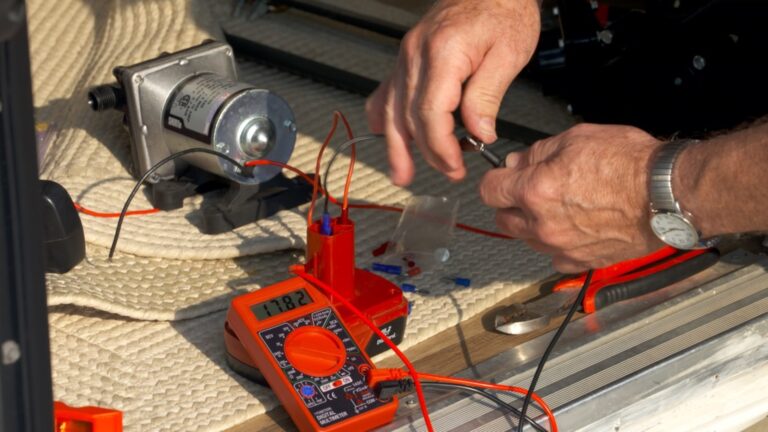
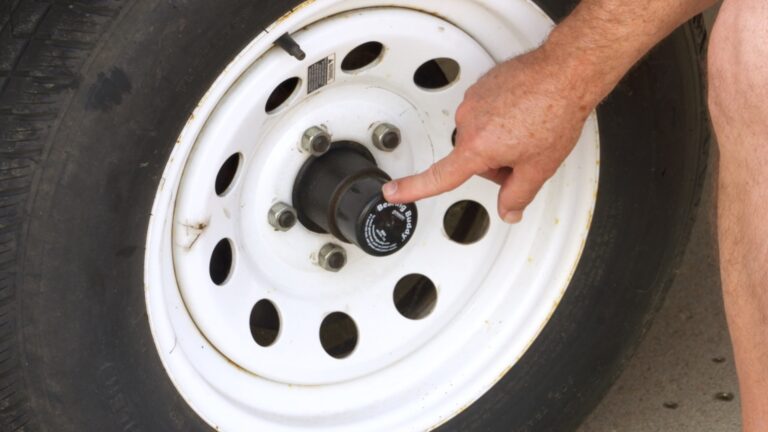
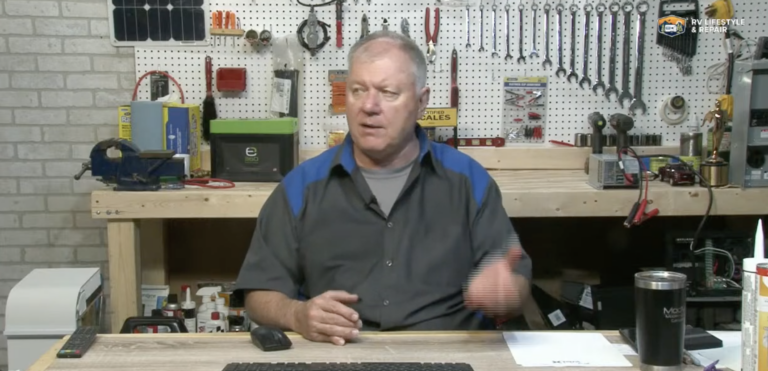
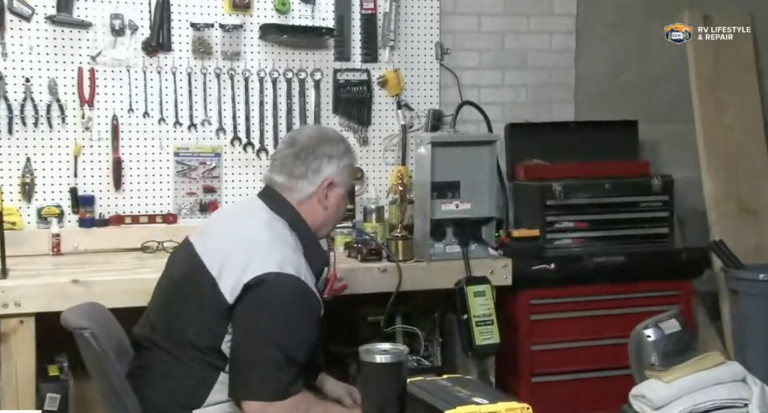
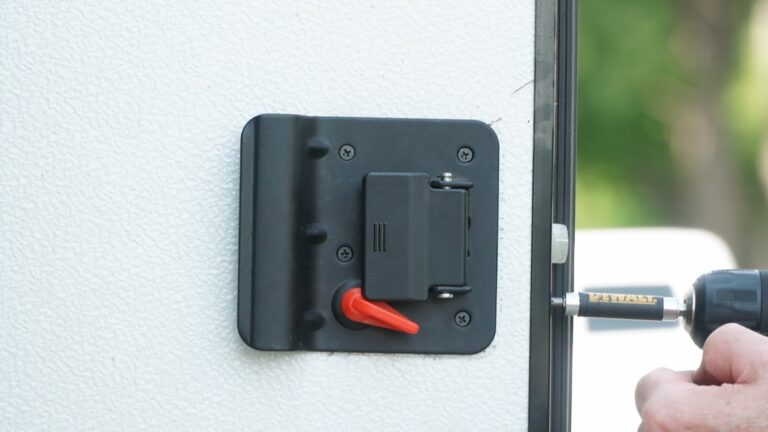
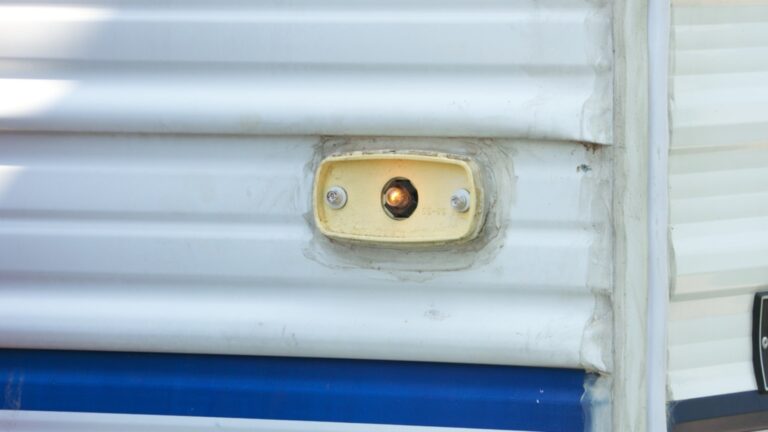
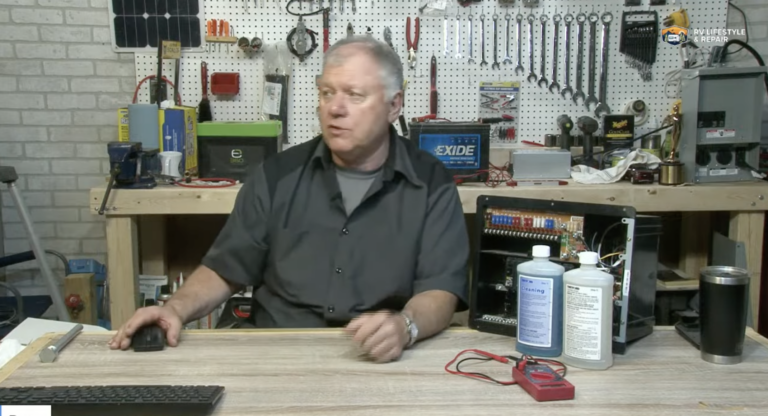
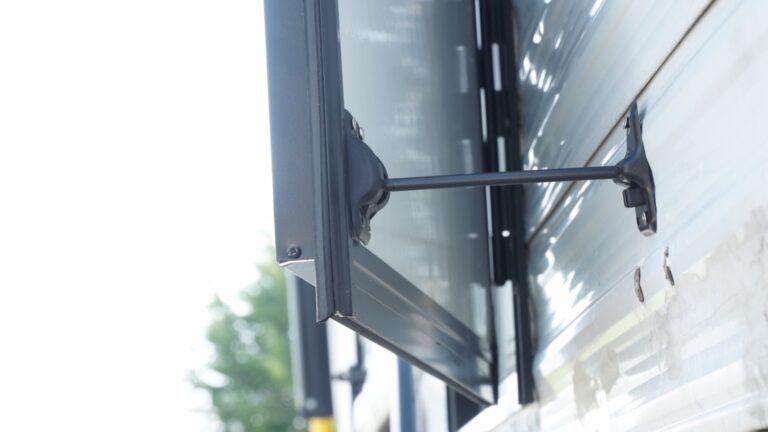
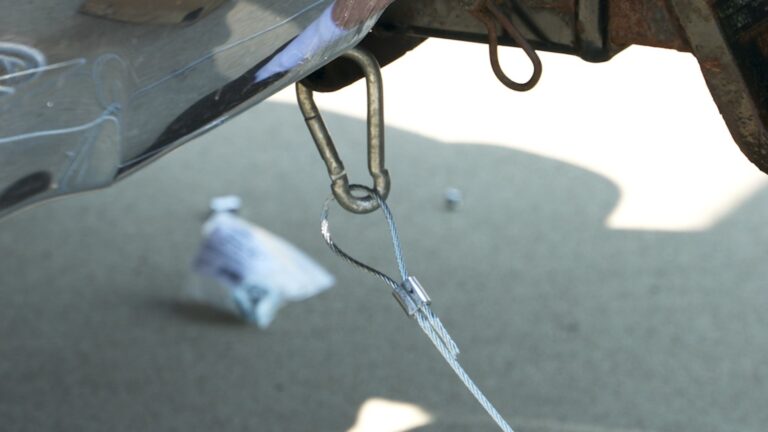
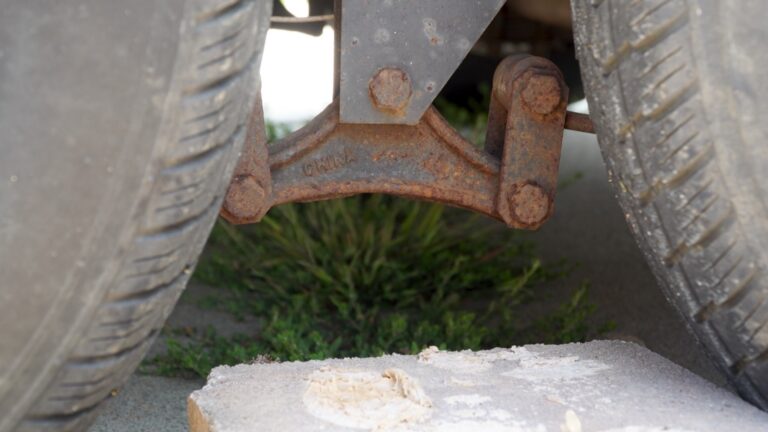
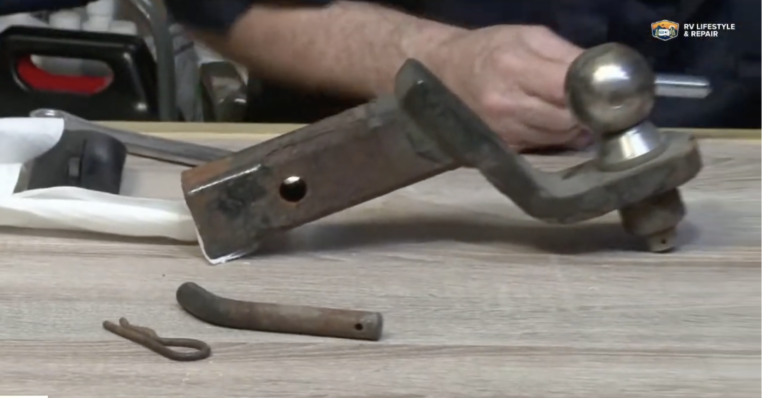
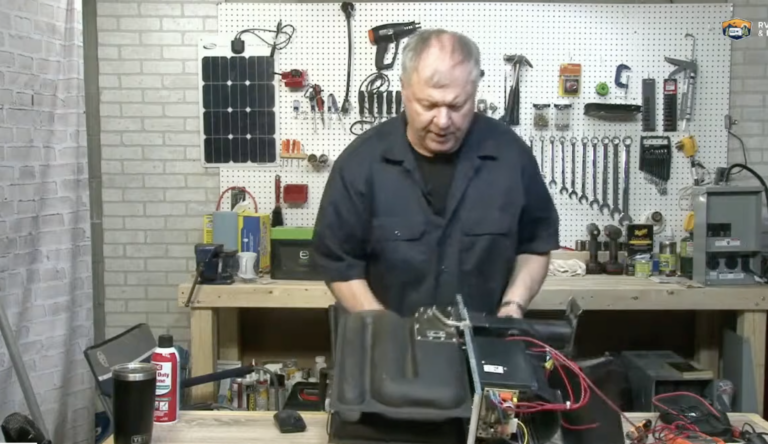
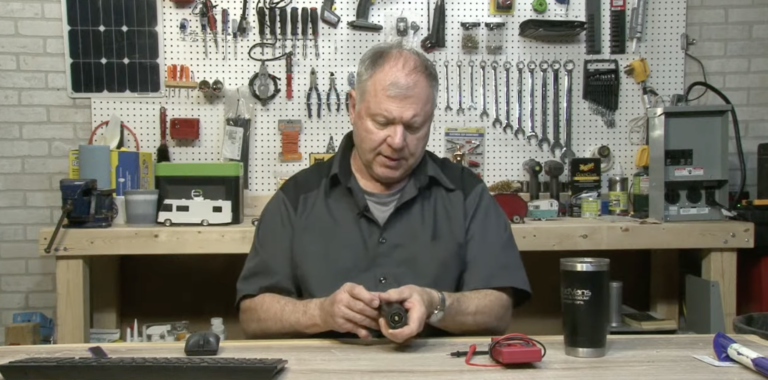
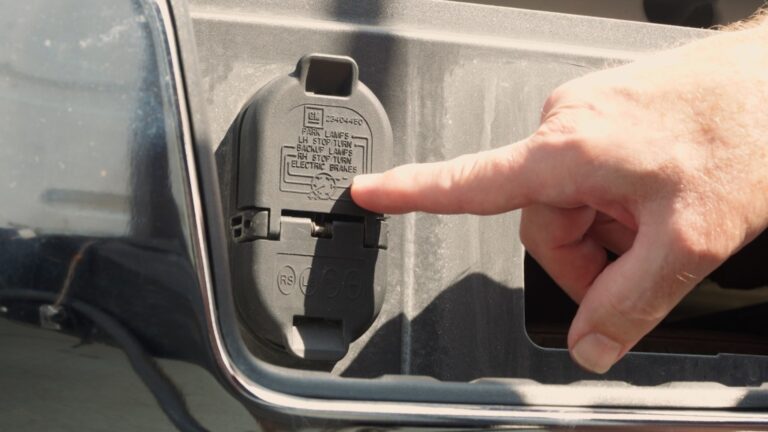
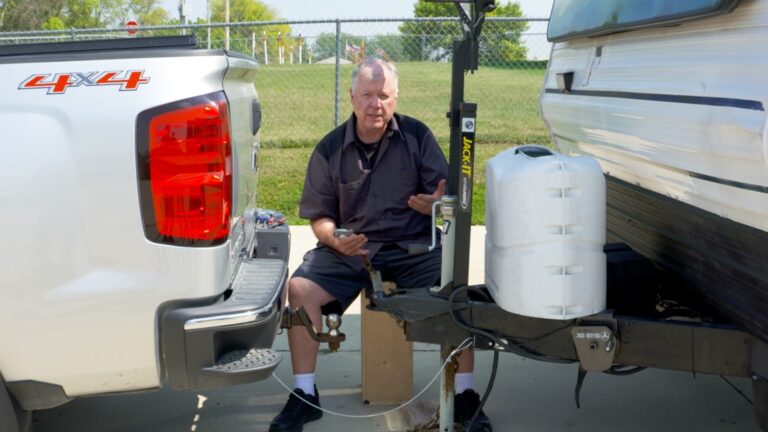
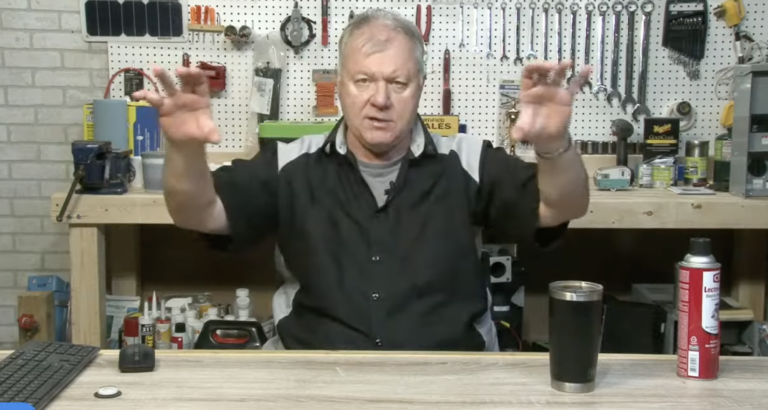
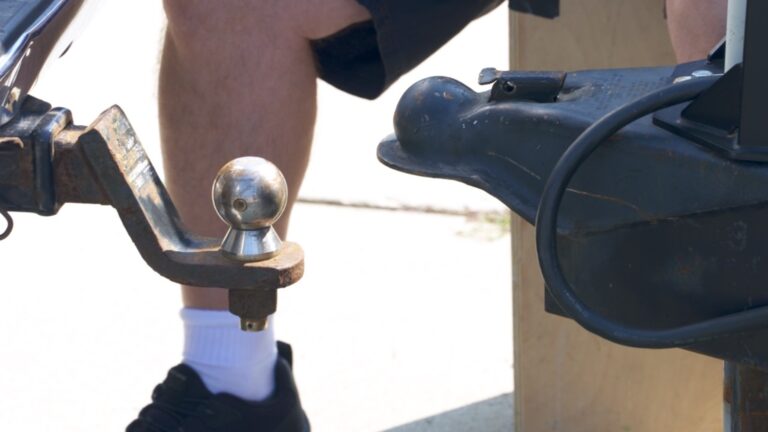
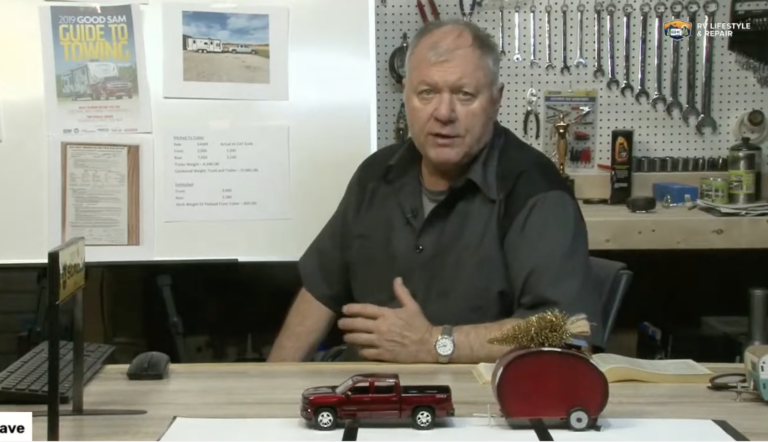
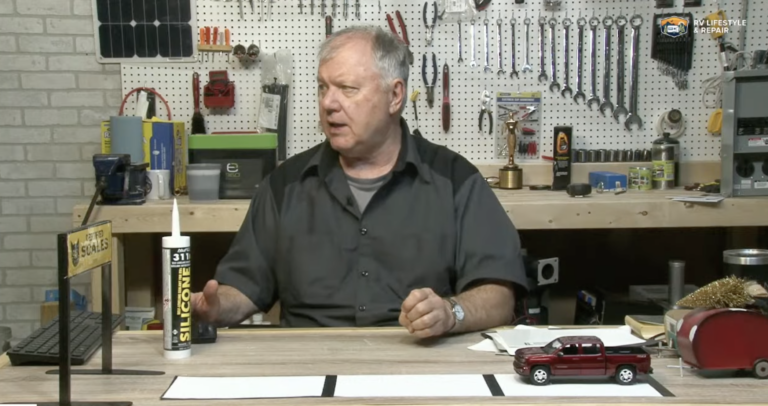
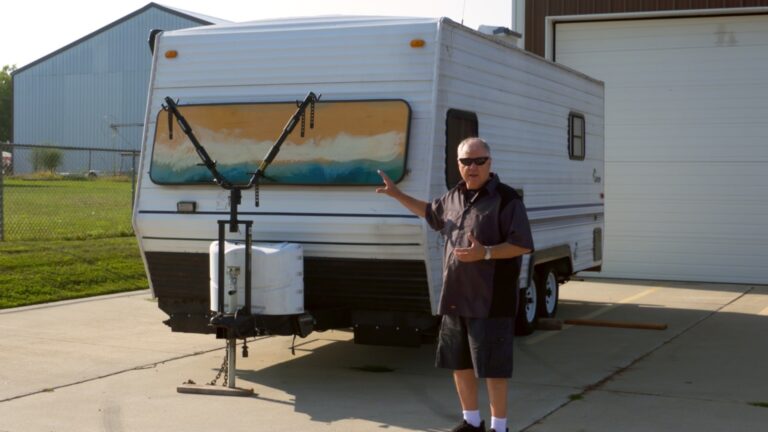
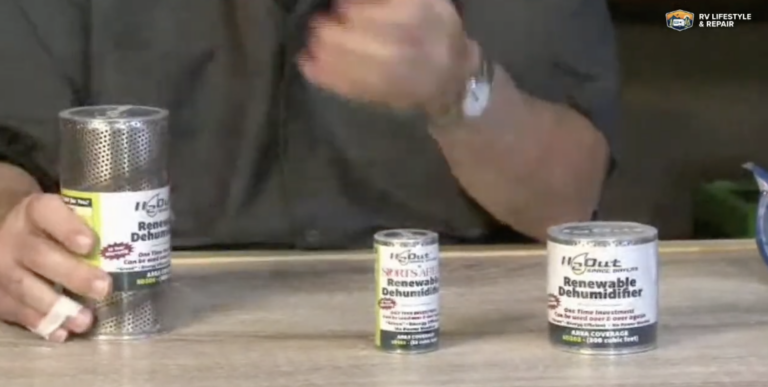
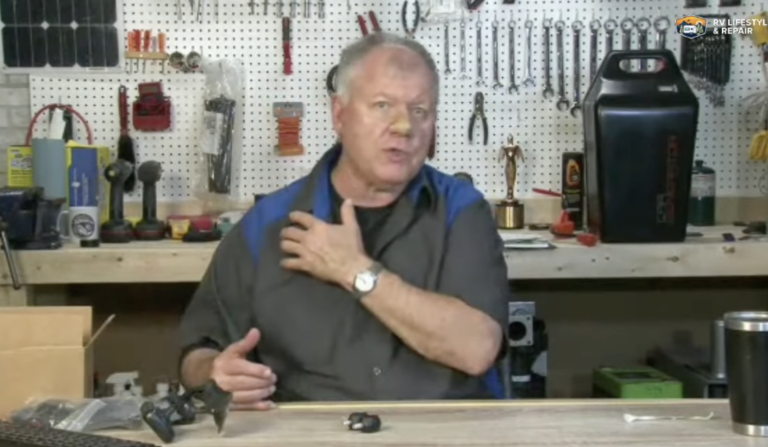
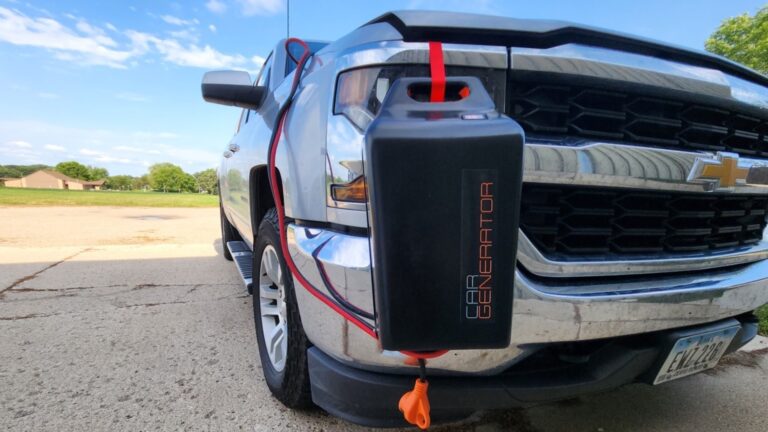
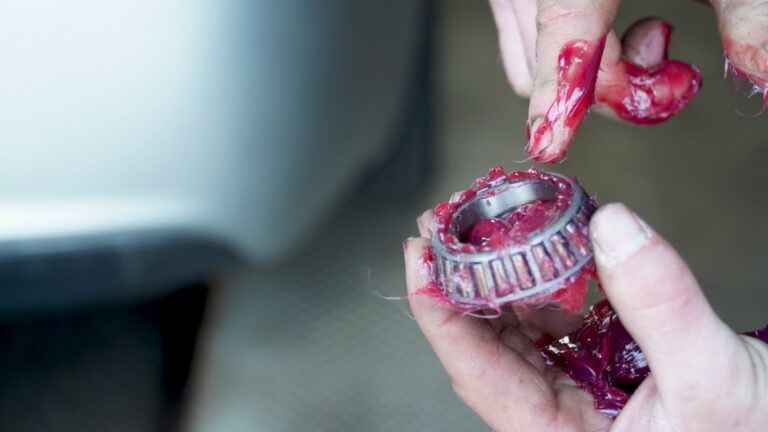
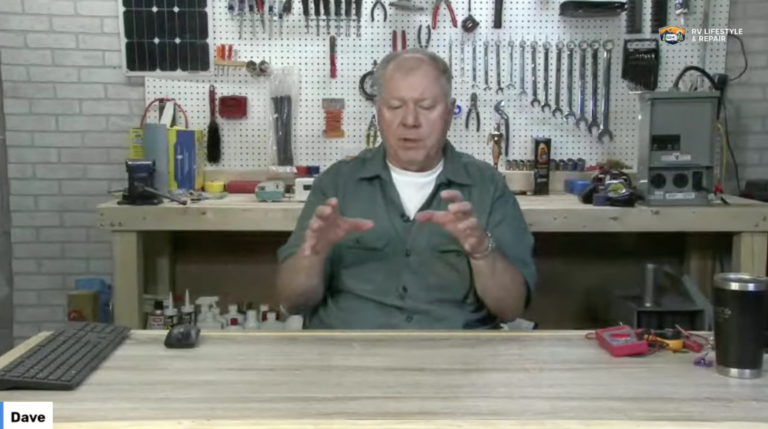
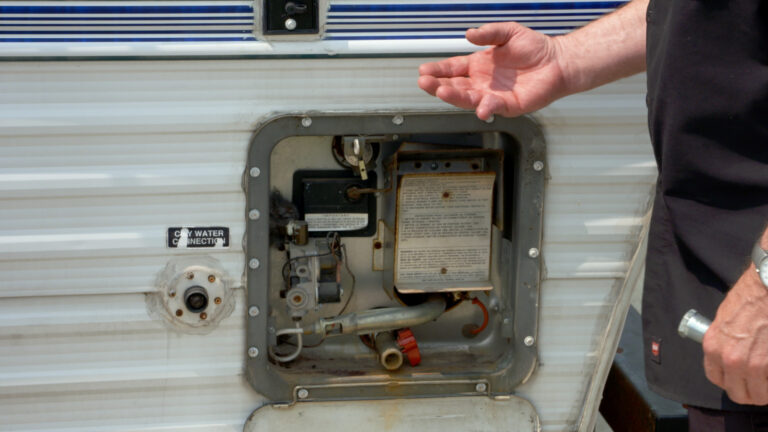
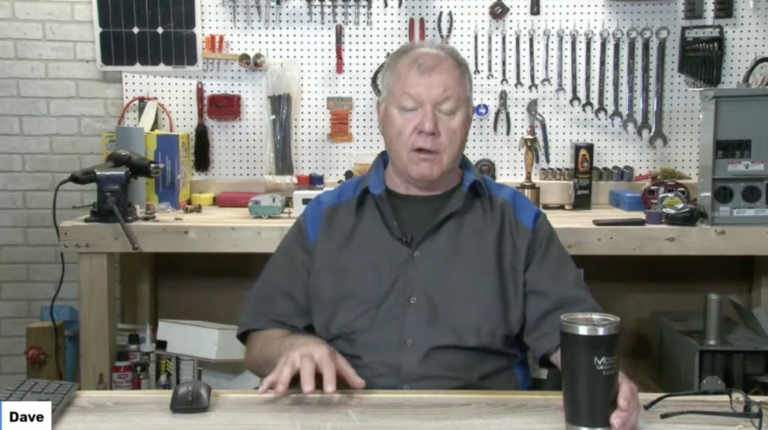
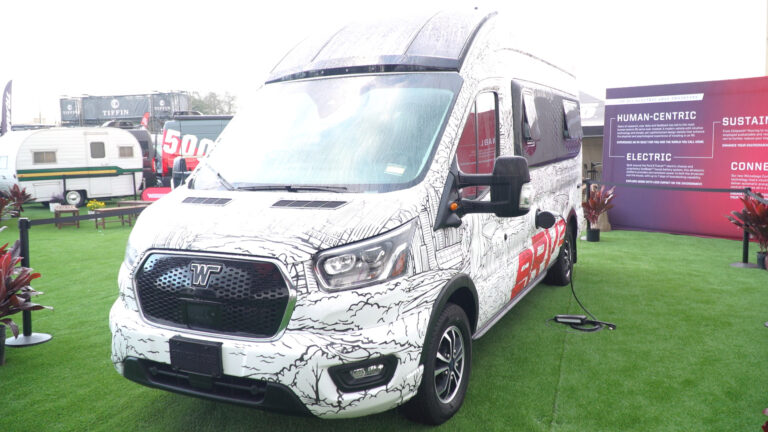
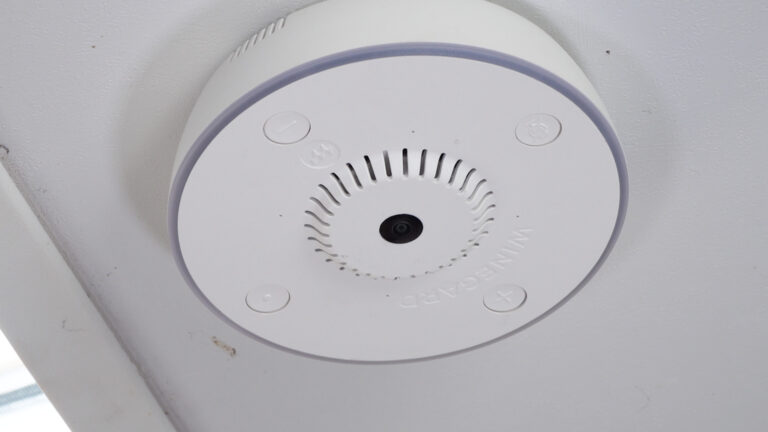
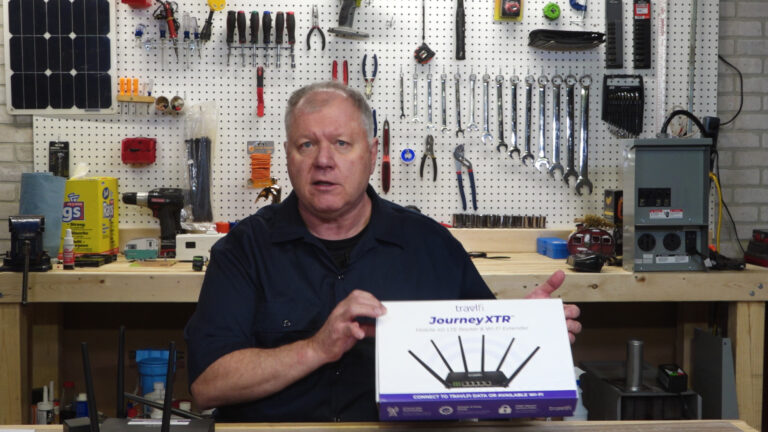
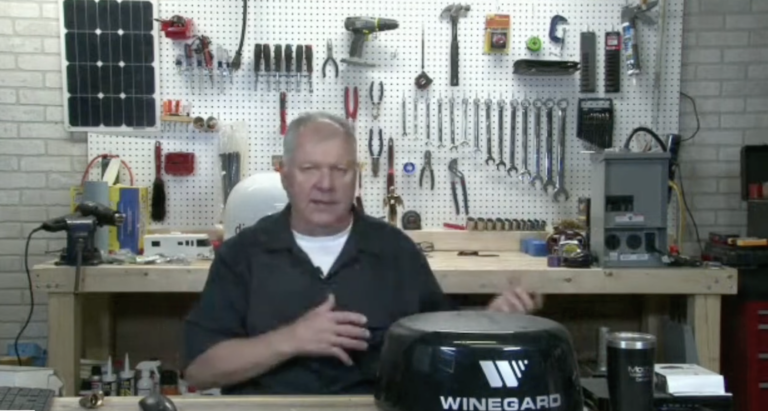
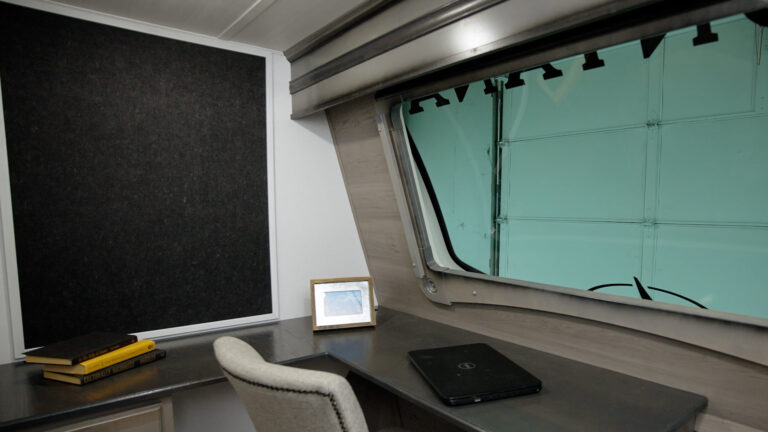

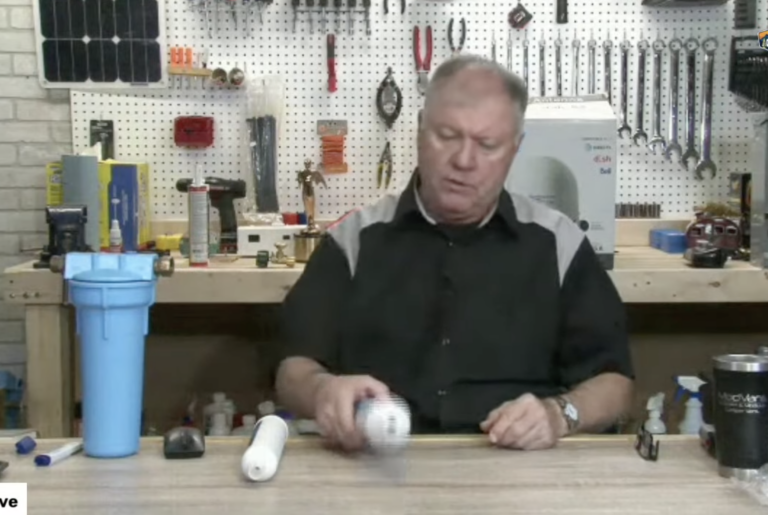
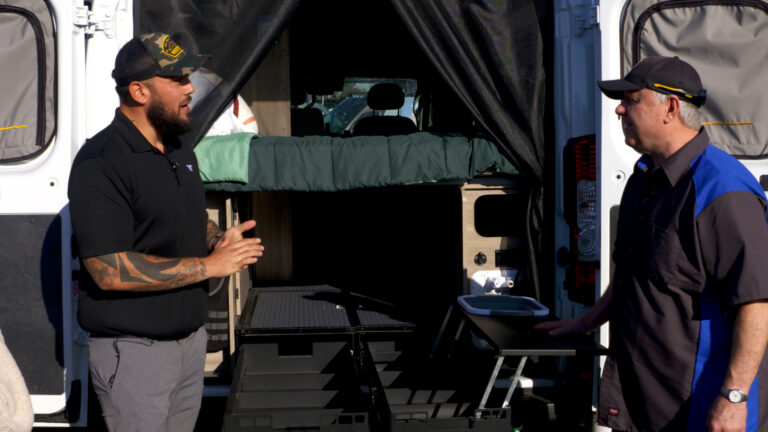
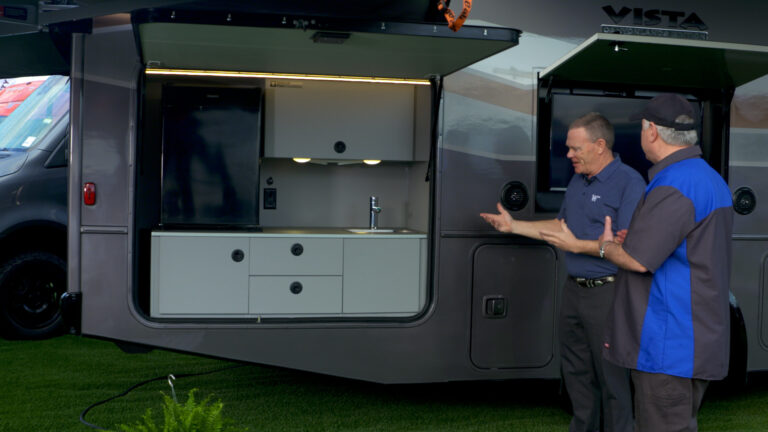
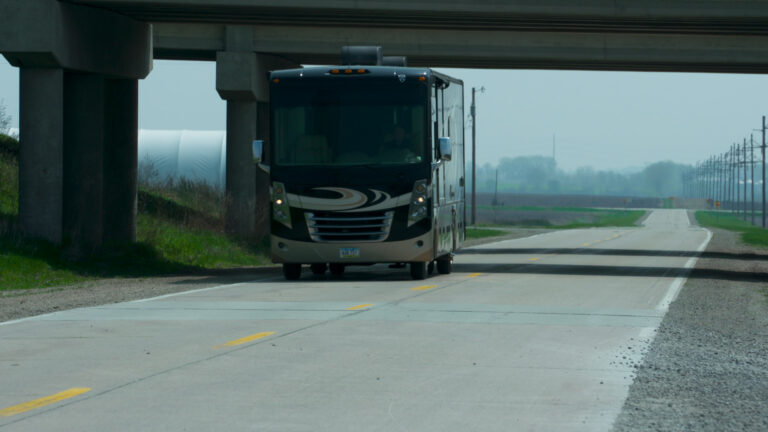
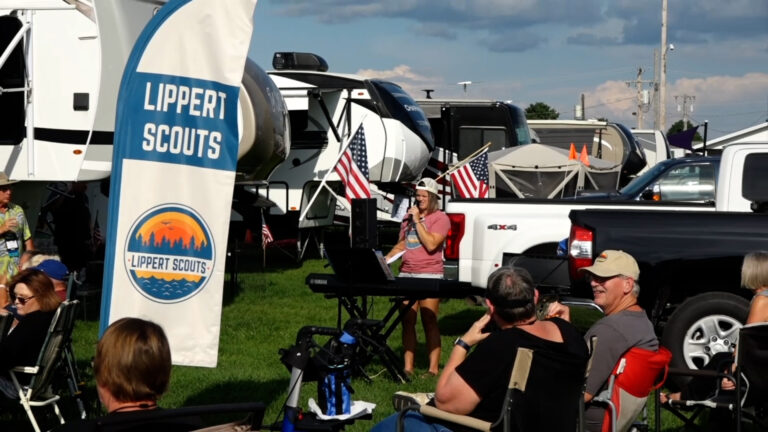
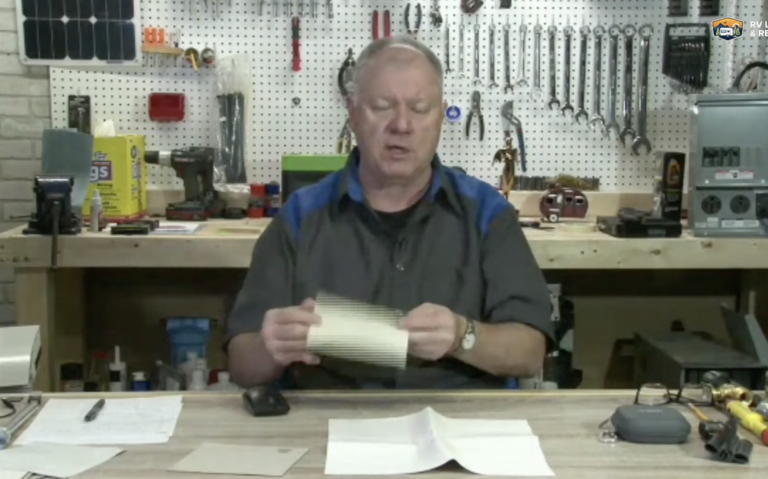
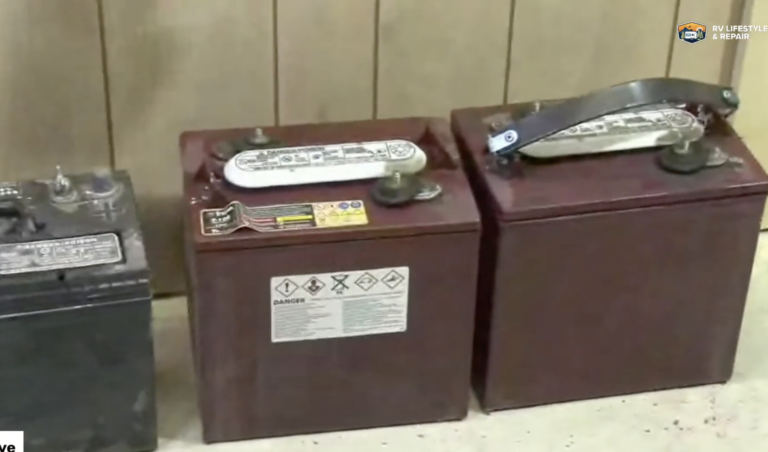
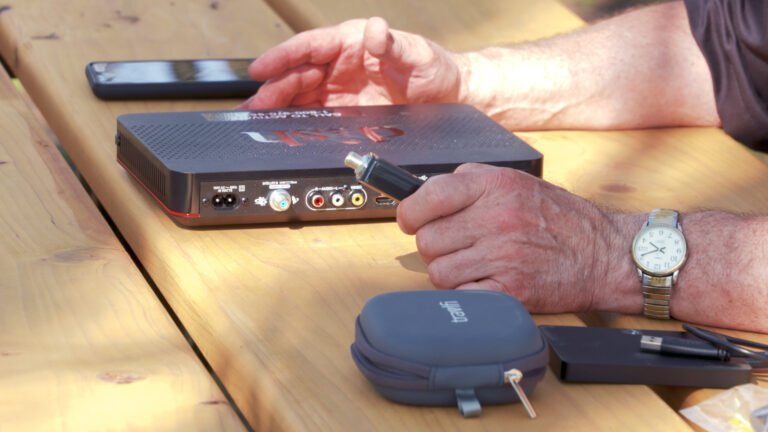
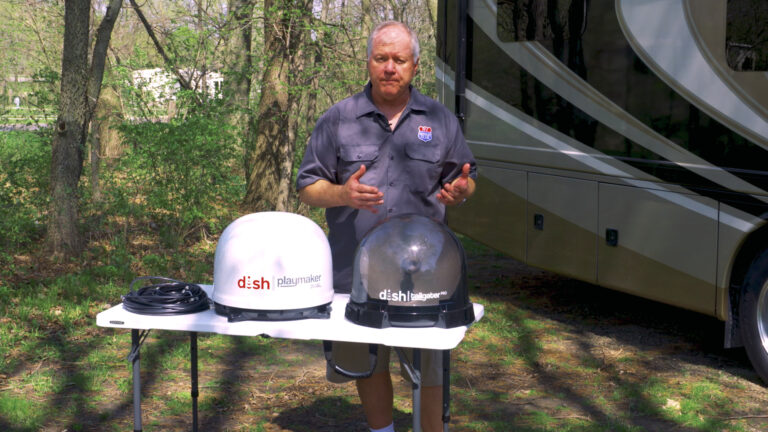
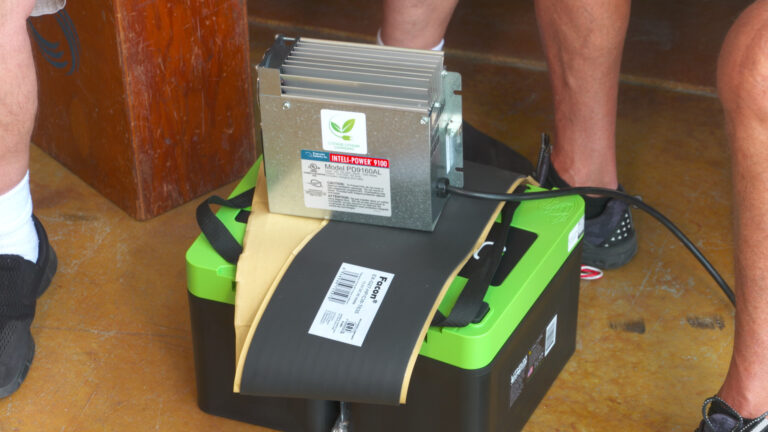
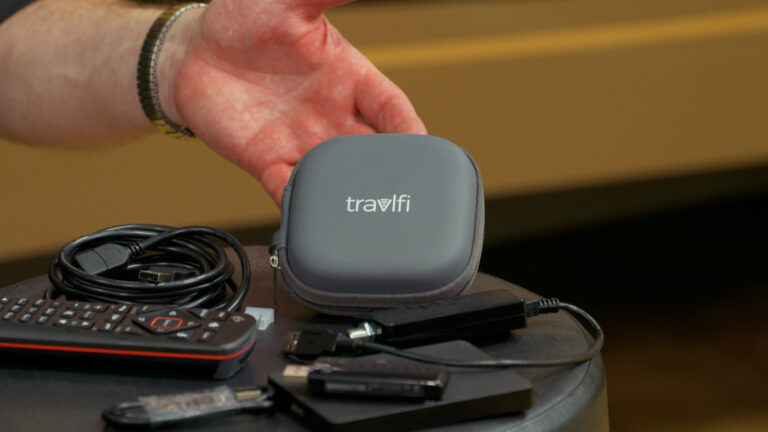
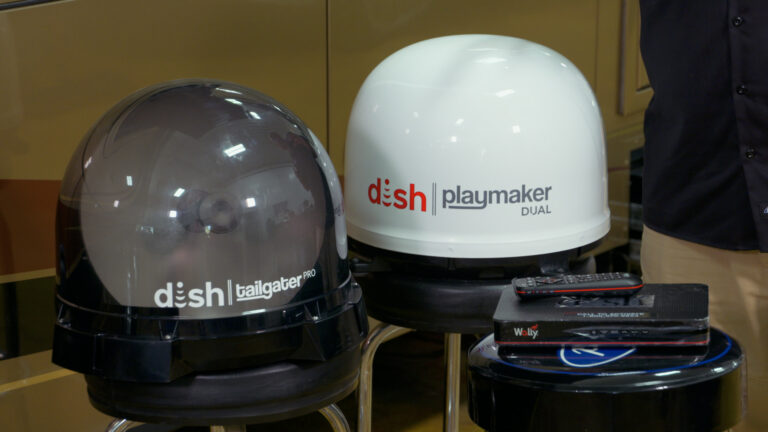
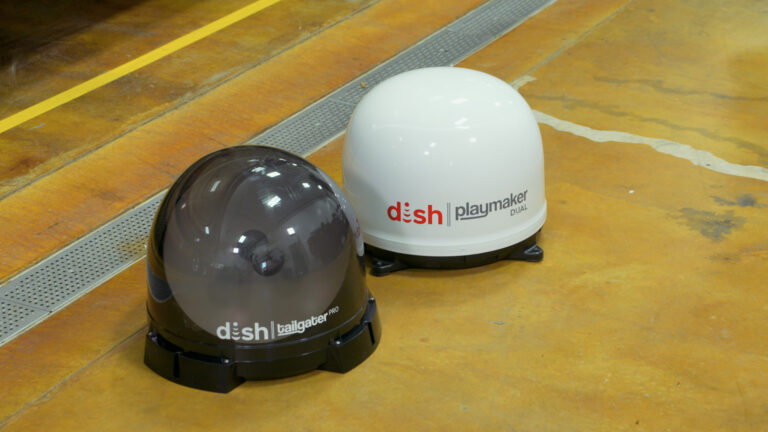
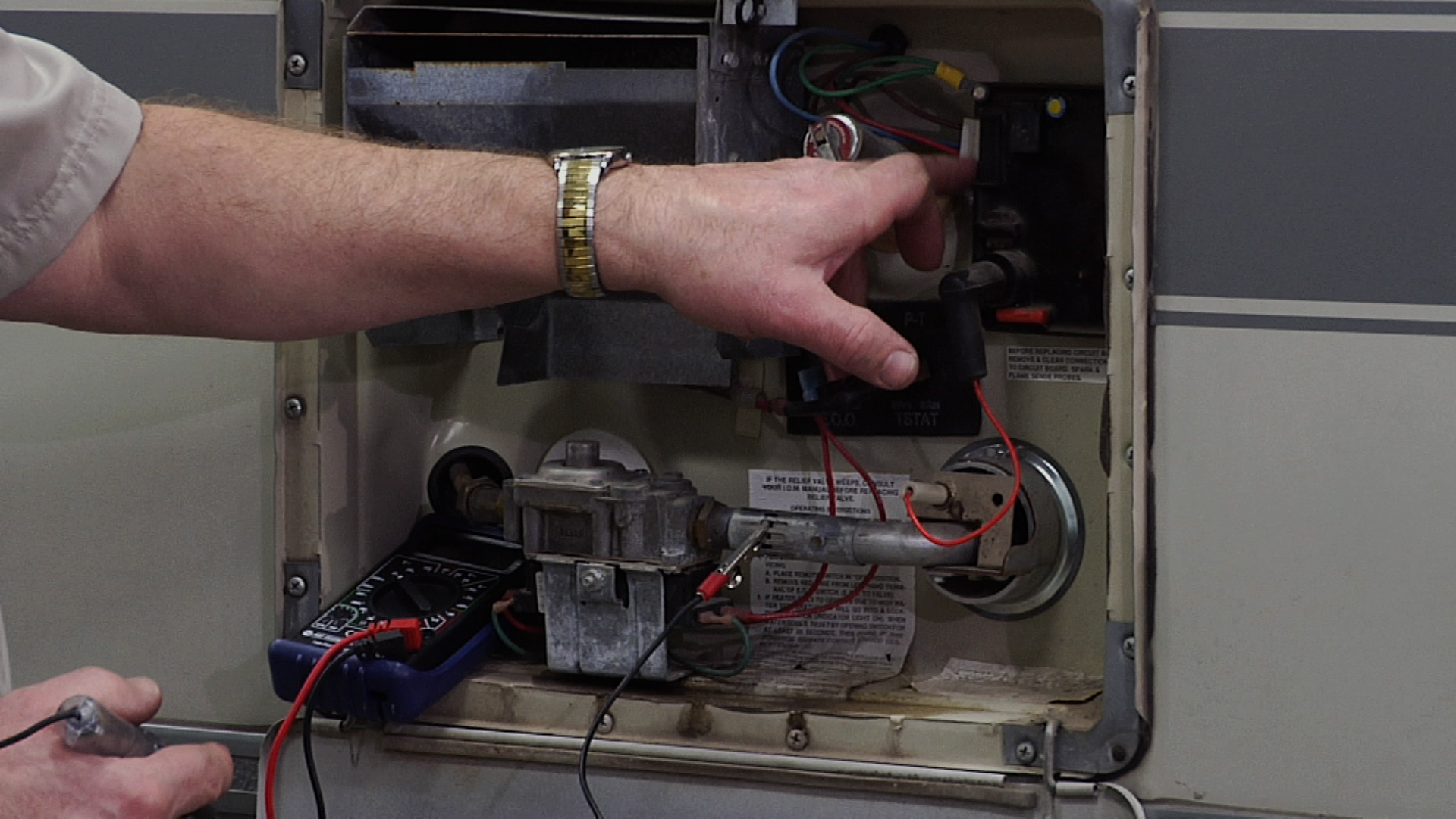
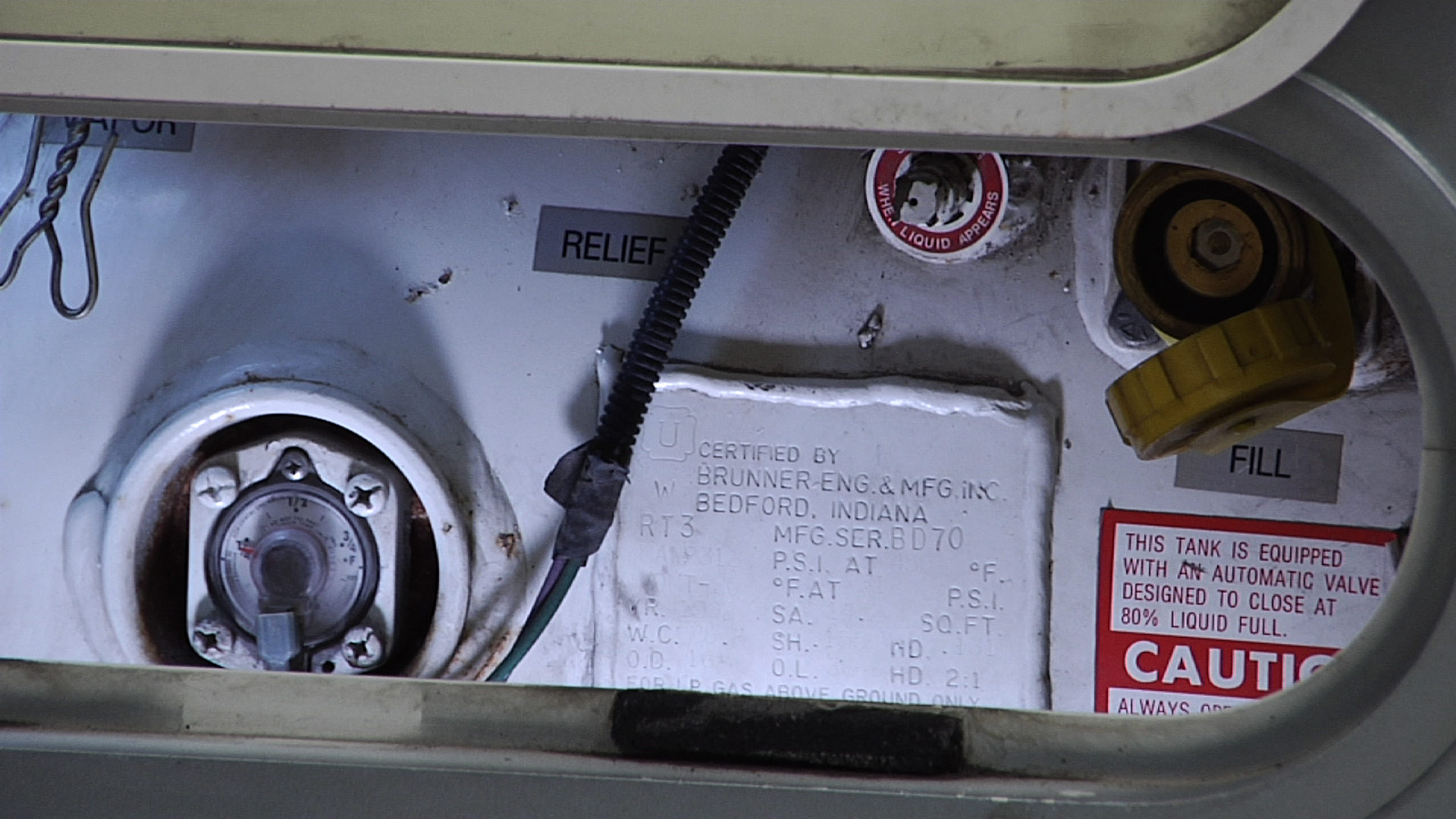
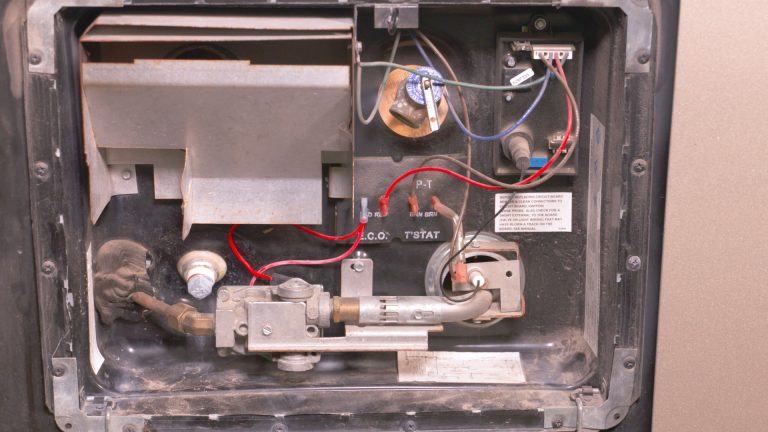
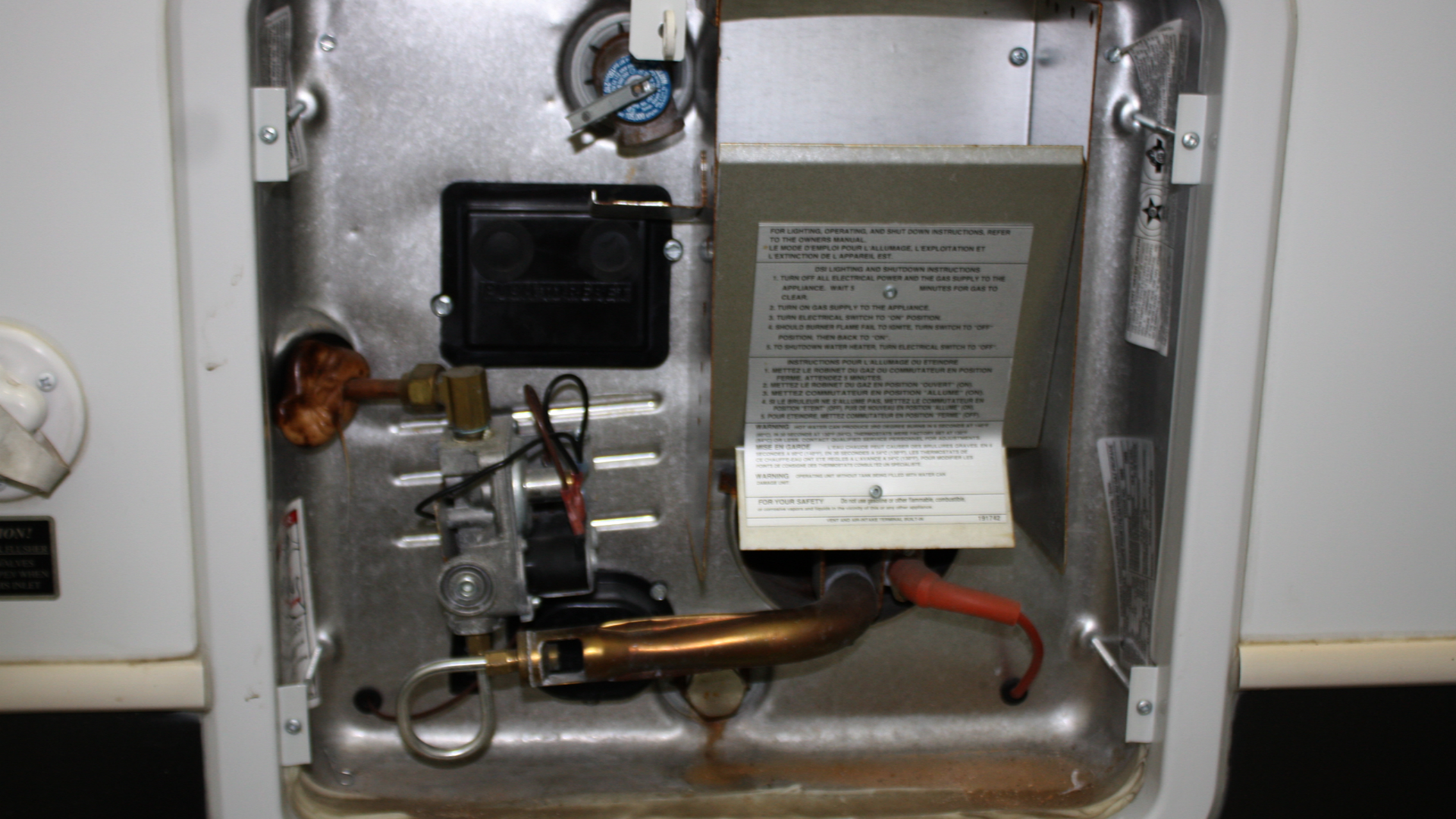

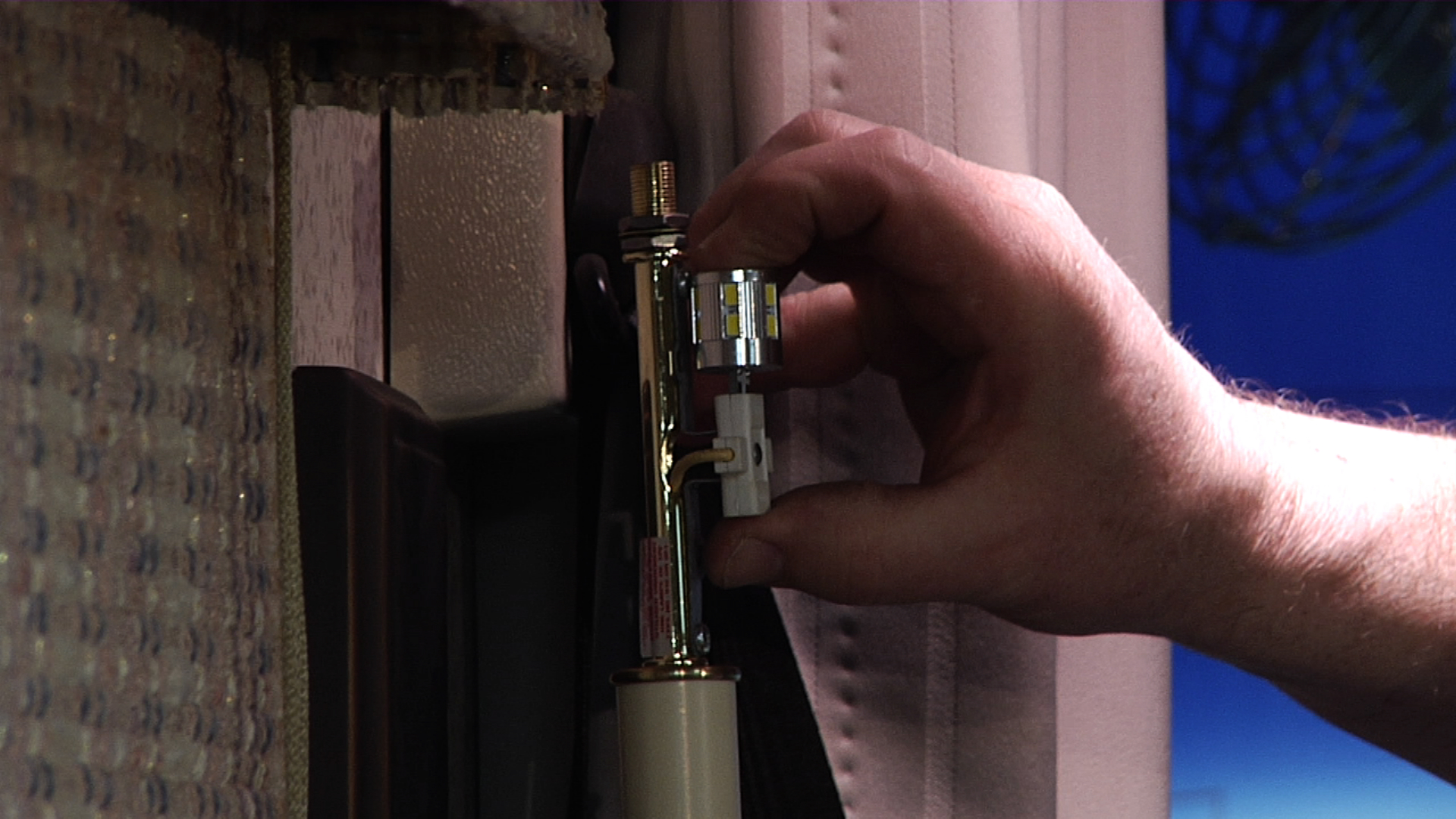
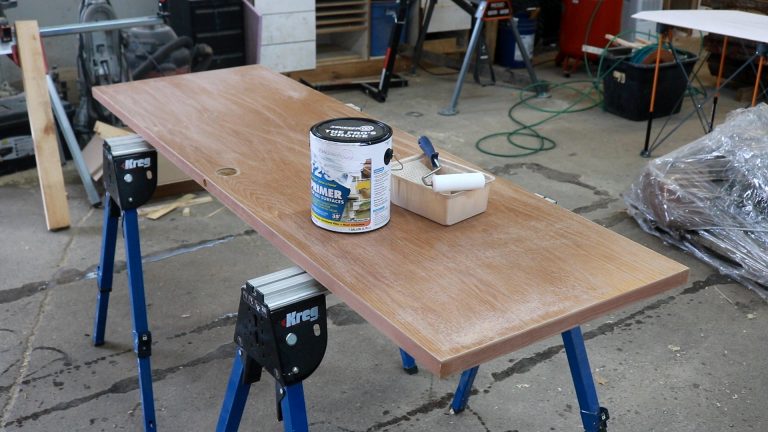

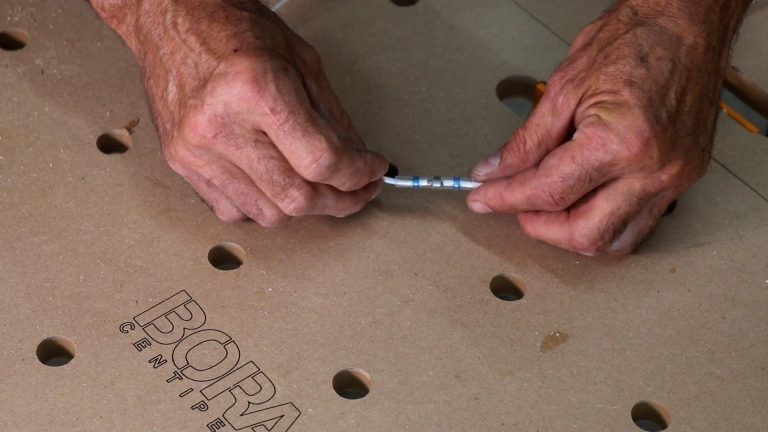
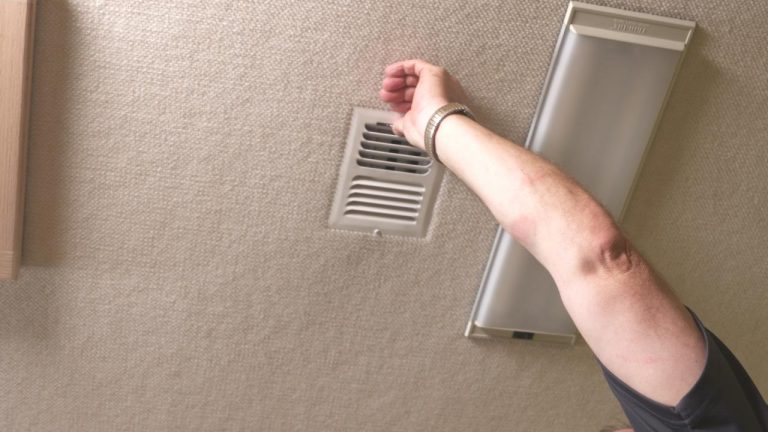

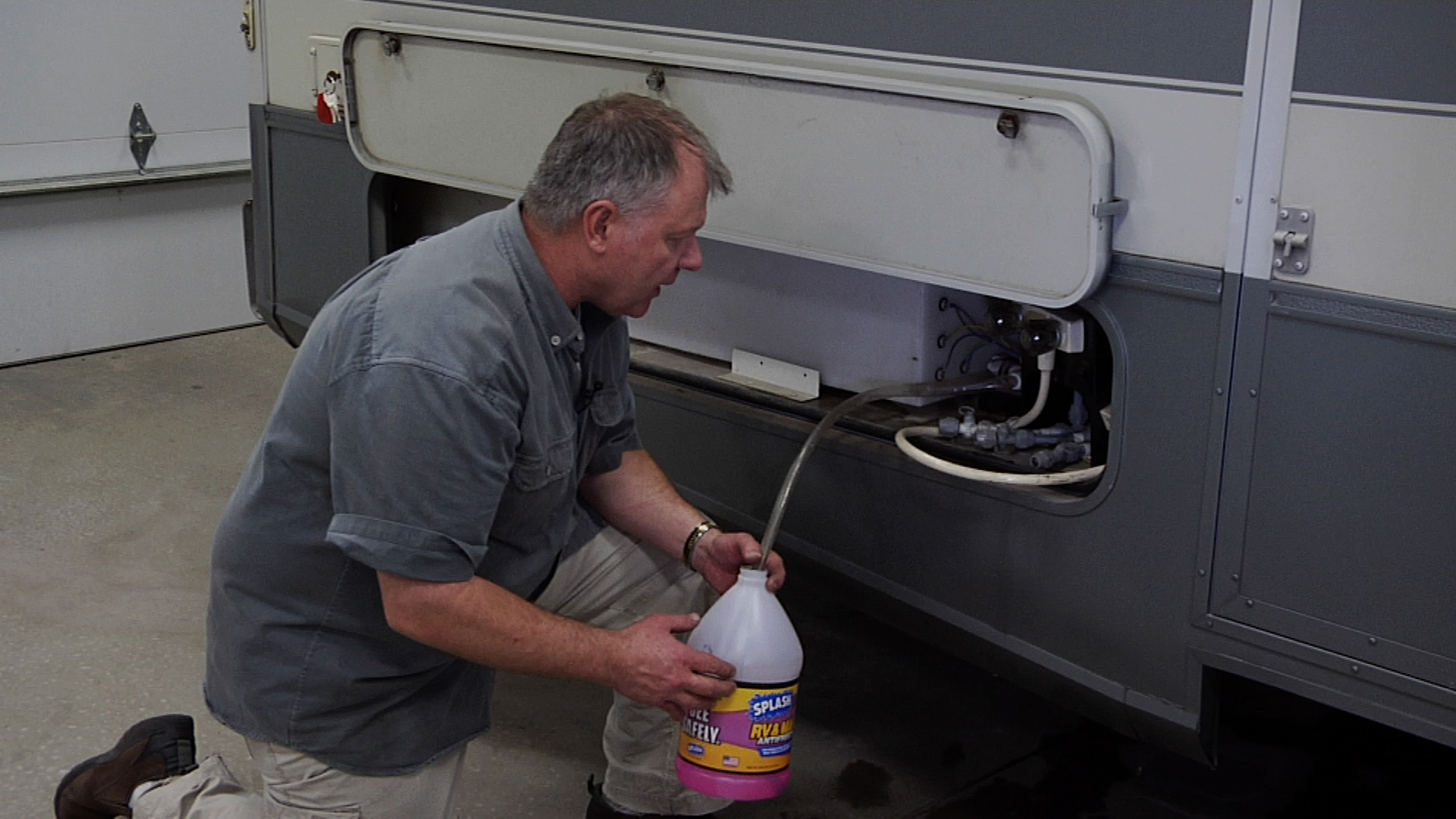


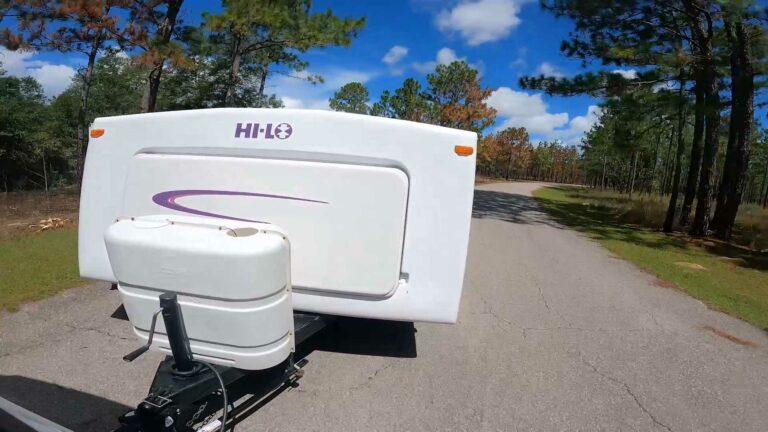
We check all Connections, and it's still won't take off. He usually hacked in the switchboard. Pushethe button a couple times to get igoing.
Well I'm not a member but when I click on some of the videos down below they got all kind of writing around all around them and you can't hardly see what's happening. I can't afford $7 a month especially right now because I only get paid on the 3rd of each month. Would it be okay if I shared this with a friend of mine that likes working on RVs?
My dad has a 1987 fleetwood terry trying to find out why hot water heater is not working but dunno where to even start at just wondering if u had any advise
Trying to trouble shoot my dometic 10 gallon hot water heater. It stopped working on electric, but runs on gas. I have pictures of the back of it. Can’t find a reset switch anywhere. I have rest the circuit breaker for it just in case, but it had not popped. No interior fuse for the water heater on the circuit board either.
How do i wire up all the color wires and where do they go on my 1989 travel trailer. Please and electric and lp.
Your hot water heater video does nothing to show how to repair it. What's the point?
how do i switch from electric to lp
There are 6 of us in our RV and never enough hot water. Are the tankless heaters good? Do they get hot and really never run out of hot?
Where is the thermo cut off on a water heater
How to remove difficult RV water heater anode rod